Top Trending Appointments News & Highlights


According to FT, Meta reduces stock rewards for the majority of employees by 5%.
As CEO Mark Zuckerberg invests billions of dollars in its artificial intelligence goals, Meta cut the annual payout of stock options for the majority of its employees by roughly 5%, according to a Financial Times report on Thursday.In the fierce AI race in Silicon Valley, Meta and other Big Tech companies are vying with one another to outbuild one another with enormous data centers. In January, the social media corporation stated that it anticipated spending between $115 billion and $135 billion on capital projects in 2026.According to the report, which cited people familiar with the situation, Meta has reduced equity-based incentives for the majority of its employees for the second consecutive year. According to the FT story, the corporation stunned some employees by reducing the stock reward by about 10% last year.The entity incorporates Meta's ambitious "metaverse" wager, which has resulted in losses of about $70 billion since 2021. According to President Donald Trump, Meta is investing $50 billion to develop a number of gigawatt-scale data centers across the United States, including one in rural Louisiana.
Published 20 Feb 2026 01:03 PM
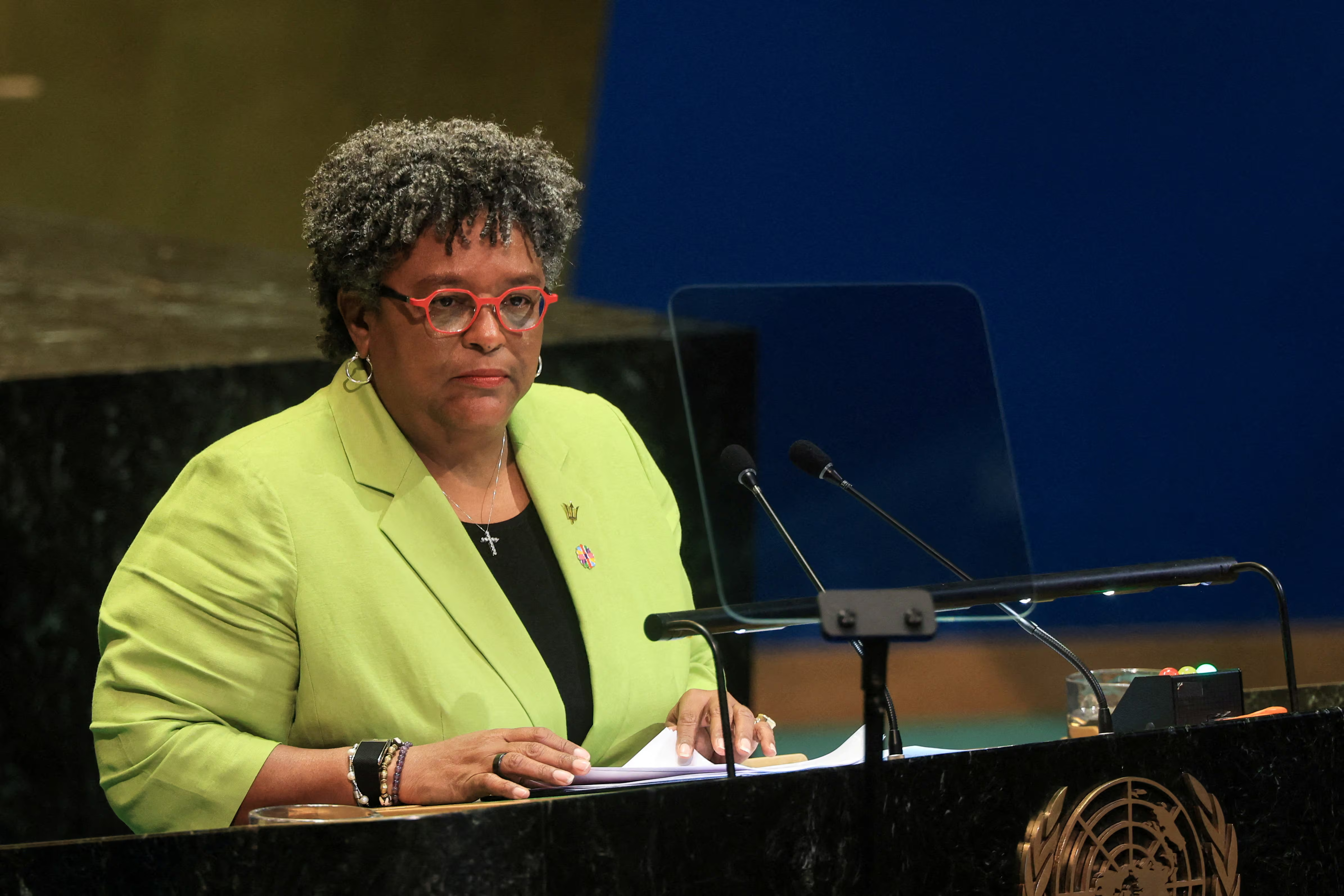

In Barbados, Mia Mottley Earns a Historic Third Term
With her party capturing every seat in the House of Assembly, Barbados' Prime Minister Mia Mottley has achieved an unprecedented third straight election victory. For the third time, her party, the Barbados Labour Party (BLP), took home all 30 seats in Parliament. In the history of the island nation, the triumph represents a significant political turning point.Results of the Election 30/30 seats were won by BLP. Ralph Thorne, the leader of the opposition, was removed. Mottley is only the second leader to hold office for more than two terms in a row. During her speech of victory, Mottley promised to: Cut down on poverty Boost the infrastructure Boost medical care Boost traffic safetyPolitical Background The election brought to light two opposing strategies: Mottley's diplomacy with a global perspective, including climate activism Opposition emphasizes issues related to the domestic economy. Mottley has advocated debt-for-climate swaps and been a prominent global voice on debt reform for countries at risk from climate change. Barbados made a substantial improvement last year by bringing its debt-to-GDP ratio down to just about 100% from bond defaults in 2018.Global Response In addition to congratulating Mottley on her "clear electoral victory," U.S. Secretary of State Marco Rubio indicated interest in enhancing collaboration on: Control of crime Prevention of drug trafficking Security in the region Barbados continues to play a significant strategic role in the Caribbean.
Published 16 Feb 2026 05:46 PM
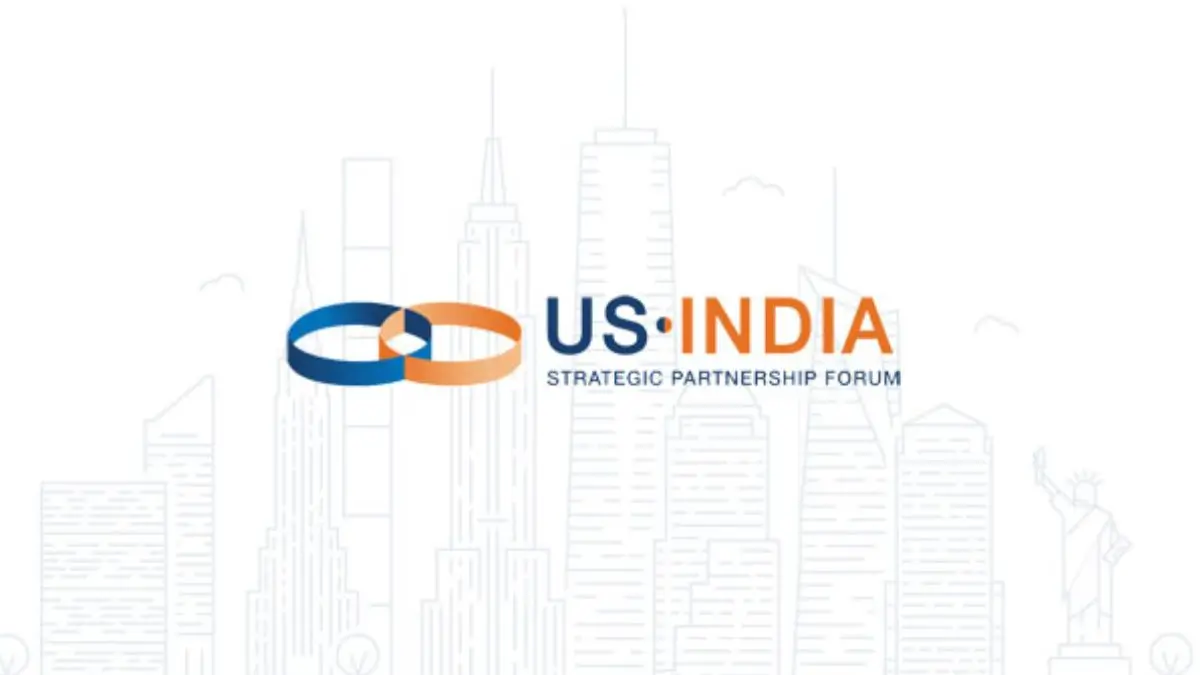

A former secretary of consumer affairs has been appointed to a key USISPF position.
The appointment of former Consumer Affairs Secretary Rohit Kumar Singh as Chair of the Global Value Chains Committee of the US–India Strategic Partnership Forum (USISPF) on February 9, 2026, marked a major step forward for India-US economic interaction. The action underscores the increased focus on reliable supply chains and reliable alliances.Selection of the Chair of USISPF's Global Value Chains Committee Rohit Kumar Singh, a former secretary of consumer affairs, has been named chair of the US-India Strategic Partnership Forum's Global Value Chains Committee. Singh, who has extensive administrative experience and a history of change, puts Indian policy knowledge at the center of debates about the global value chain in his new position. Rohit Kumar Singh's Identity A 1989-batch IAS officer from the Rajasthan cadre, Rohit Kumar Singh has a wealth of knowledge in economic governance. He was instrumental in reforming India's consumer protection laws while serving as Secretary of Consumer Affairs. His leadership earned praise for enhancing responsiveness and openness by fusing technology-driven governance with regulatory reform. In his new worldwide job, he is well-positioned to combine policy, industry, and international cooperation thanks to his administrative background.Why USISPF Is Important and What It Is Through cooperation between governments, corporations, and thought leaders, the US–India Strategic Partnership Forum (USISPF) is a premier forum that enhances strategic and economic connections between the US and India. It operates in a variety of industries, including supply chains, trade, technology, energy, and defense. At a time when global trade is fragmented and under geopolitical stress, USISPF is essential in facilitating conversation and coordinating policy agendas.
Published 10 Feb 2026 05:46 PM
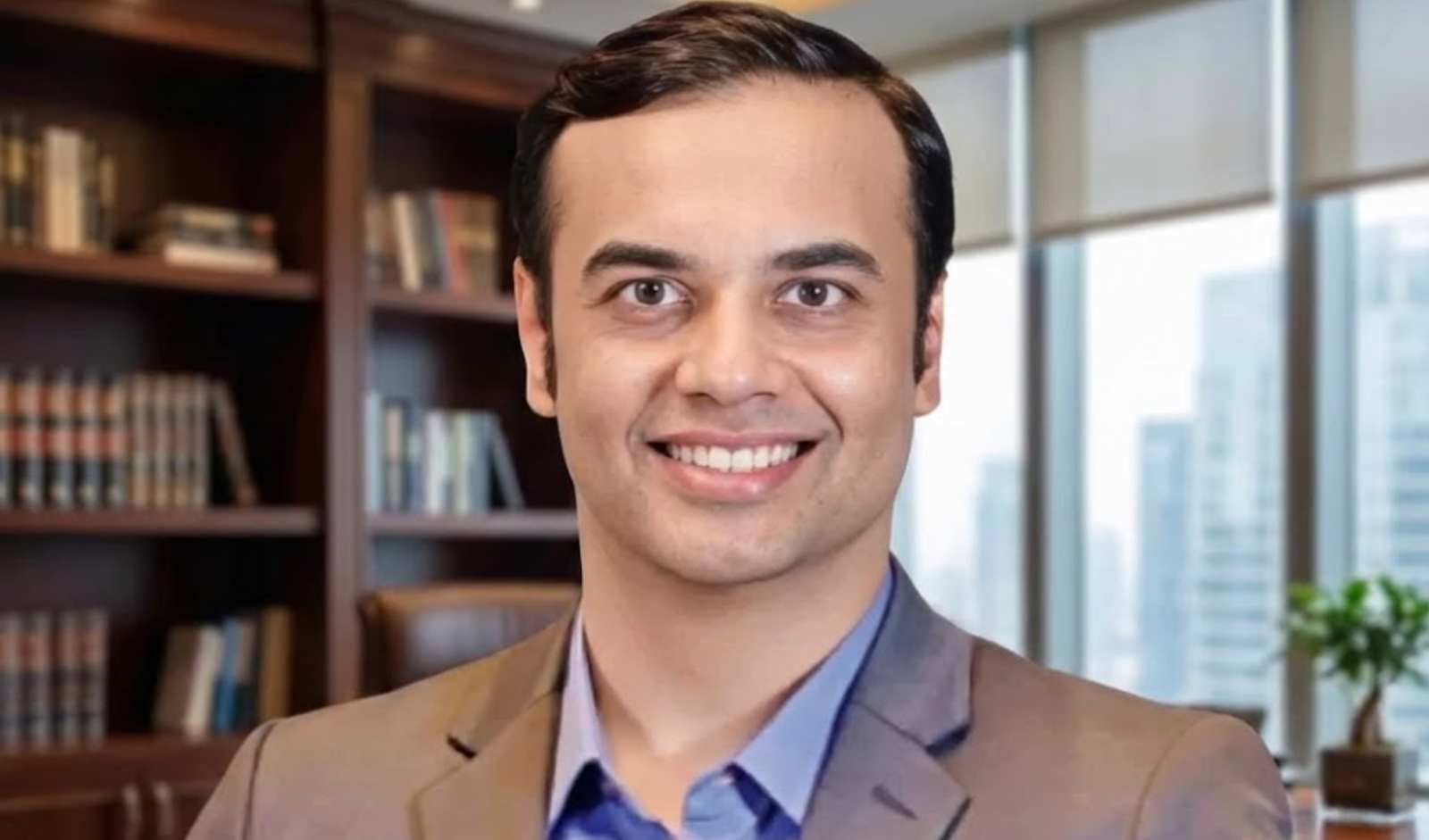

Venugopal Jeyandran Reliance Retail Ventures Ltd.'s President and CEO was appointed.
Jeyandran Venugopal, a senior executive from Flipkart, has been named President and CEO of Reliance Retail Ventures Ltd. (RRVL) by Reliance Industries Ltd. (RIL). In an effort to further accelerate growth in the fiercely competitive retail industry, India's largest retail conglomerate made the statement on December 3, 2025. This is a brand-new role that highlights RRVL's goal to implement an ambitious retail and omni-channel strategy and increase leadership depth.Background: Jeyandran Venugopal: Who Is He? In the Indian e-commerce industry, Jeyandran Venugopal is a well-known figure. He played a key role in growing the platform's operations and digital infrastructure while holding senior positions at Flipkart that were centred on technology, innovation, and customer experience. His move to Reliance Retail coincides with the company's rapid e-commerce expansion through JioMart, all the while preserving a robust offline retail presence in industries like fashion, electronics, luxury products, and grocery.Strategic Position in the Vision of RRVL Venugopal will collaborate closely with Isha Ambani, who leads RRVL's retail sector, in his capacity as President and CEO. Among his responsibilities will include Overseeing omni-channel integration and digital transformation Promoting innovation in consumer interactions and the supply chain Improving offline and online operations through data-driven decision-making increasing urban penetration and extending RRVL's reach throughout tier 2 and tier 3 cities His appointment demonstrates Reliance's desire to directly compete with Amazon, Walmart-Flipkart, and Tata Neu by utilising cutting-edge technology and customer data intelligence in addition to size.Reliance Retail Ventures Ltd. (RRVL), the retail holding company of Reliance Industries, is the biggest retail player in India. Its varied portfolio includes Trends, JioMart, Ajio, Reliance Fresh, and Hamleys Strategic alliances with international companies such as Burberry, Jimmy Choo, and Tiffany Recent acquisitions in fashion, food retail, and e-commerce that demonstrate a hyper-growth approach RRVL continued to dominate the market in terms of both revenue and physical store network in FY2024–2025, reporting record revenues.
Published 04 Dec 2025 06:11 PM


Appointments
Appointments
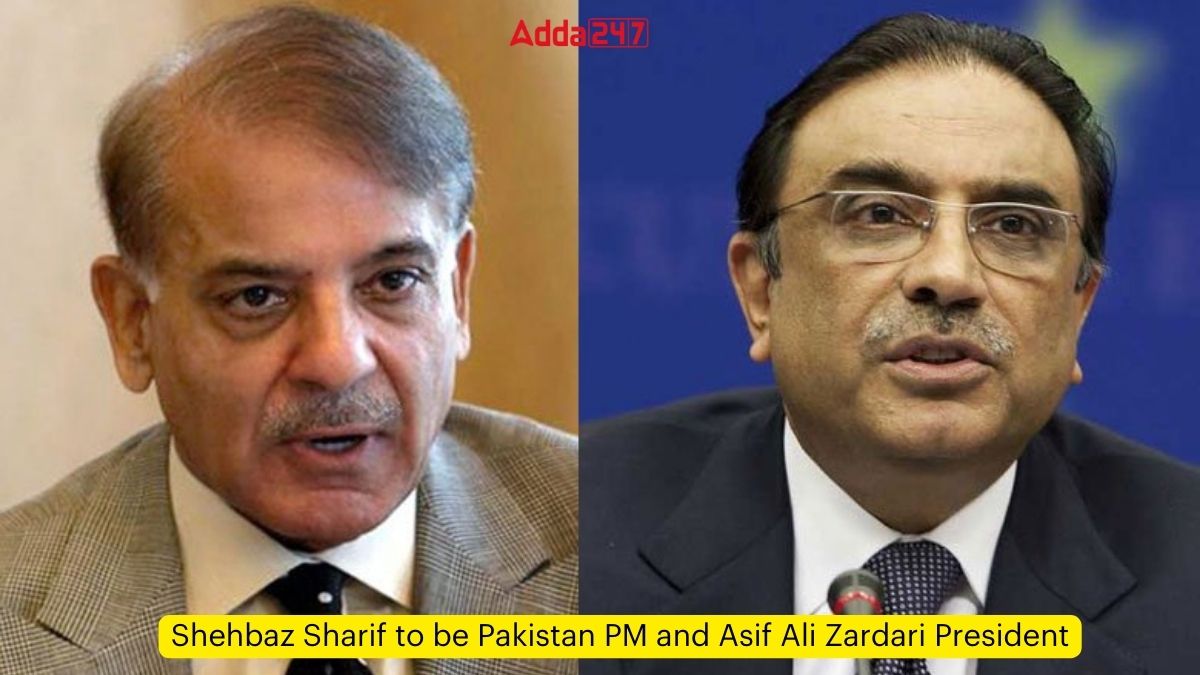

Shehbaz Sharif to be Pakistan PM and Asif Ali Zardari President
"The Pakistan Peoples Party (PPP) and the Pakistan Muslim League-Nawaz (PML-N) have agreed to share power. The Pakistan Muslim League-Nawaz (PML-N) and the Pakistan Peoples Party (PPP), two influential political parties in Pakistan, have made the decision to share power. This implies that Asif Ali Zardari would become President and Shehbaz Sharif will resume his role as Prime Minister. It's similar to when two captains from opposing teams agree to collaborate in order to win. Resolving a Political Impasse Pakistan's political landscape seems somewhat stagnant following the February 8 elections. In the National Assembly, which is the main decision-making body of the nation, no party was able to secure enough members for a clear majority. With 79 seats, the PML-N and the PPP, with 54 seats, came in third. However, the Muttahida Qaumi Movement Pakistan (MQM-P) with its 17 seats provide them with sufficient backing to establish a government. Significant Obstacles to Come Having established who is in command, they now have some difficult issues to resolve. Pakistan's financial status is precarious; last year, they just escaped going bankrupt due to a sizable loan from the International Monetary Fund (IMF). They also have to cope with safety concerns, particularly since the Taliban have been causing trouble in Afghanistan since 2021. Putting What's Important First Asif Ali Zardari and Shehbaz Sharif have a lot on their plates. They must ensure that the nation's economy. "
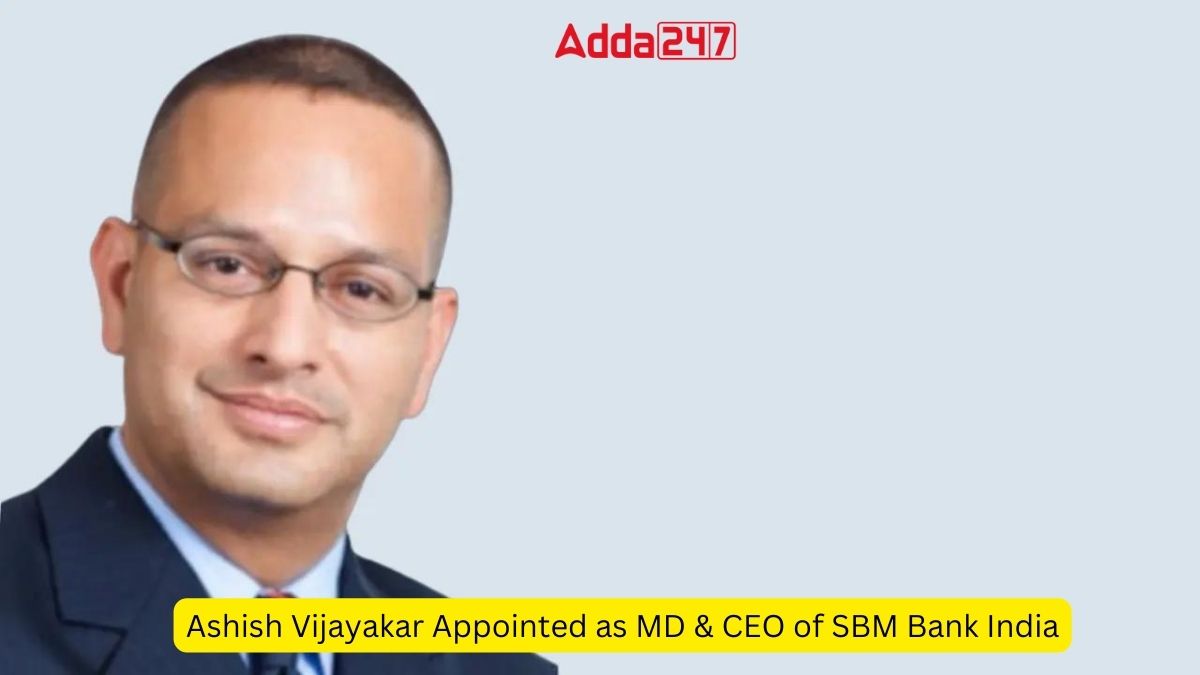

Ashish Vijayakar Appointed as MD & CEO of SBM Bank India
"Ashish Vijayakar said, ""I want to express my gratitude to the Board for giving me the leadership role in guiding SBM Bank India towards the next phase of growth."" With effect from February 17 for a period of three years, Ashish Vijayakar has been named Managing Director and Chief Executive Officer of SBM Bank India. The statement was released on Friday. A division of the State Bank of Mauritius is SBM Bank India. The appointment was made in compliance with the sanction given by the Reserve Bank of India (RBI) in a letter dated February 6, 2024, according to a statement. Vijayakar is a seasoned banker, having worked in the banking and financial services sectors for nearly thirty years. He has previously served as Standard's MD and Co-Head. Ashish Vijayakar has been named as the Managing Director and Chief Executive Officer (MD & CEO) of SBM Bank India. Ashish Vijayakar has been appointed as the Managing Director & Chief Executive Officer (MD & CEO) of SBM Bank India, a subsidiary of the State Bank of Mauritius. The Reserve Bank of India (RBI) has authorized the appointment in accordance with a letter dated February 6, 2024, and it will take effect on February 17, 2024. Knowledge and Skill. In his new position, Ashish Vijayakar brings a breadth of experience, especially in the areas of risk management, innovation, business transformation, and adjusting to shifting business conditions. His broad expertise and varied skill set make him an excellent choice to guide SBM Bank India through its subsequent stage of expansion and improvement. Background in Education Ashish Vijayakar is certified as a chartered accountant (CA) by the Institute of Chartered Accountants of India and has a Bachelor of Commerce degree from Bombay University. He also holds an LLB (General) degree from Bombay University, proving his dedication to lifelong learning and career advancement. Key lessons learned from all competitive exams SBM Bank in India Founded on December 1, 2018; Mumbai, India serves as the headquarters of SBM Bank India. ""We are confident that Ashish, along with the current management team, will reinforce the existing bonds between the bank and its stakeholders and provide seamless continuity to the service to our customers while enhancing the spectrum of strategic endeavors of the bank with his expertise,"" stated Sattar Hajee Abdoula, Chairman of SBM Bank India. His vision and unrelenting commitment to excellence are a perfect fit with our goals and desires."
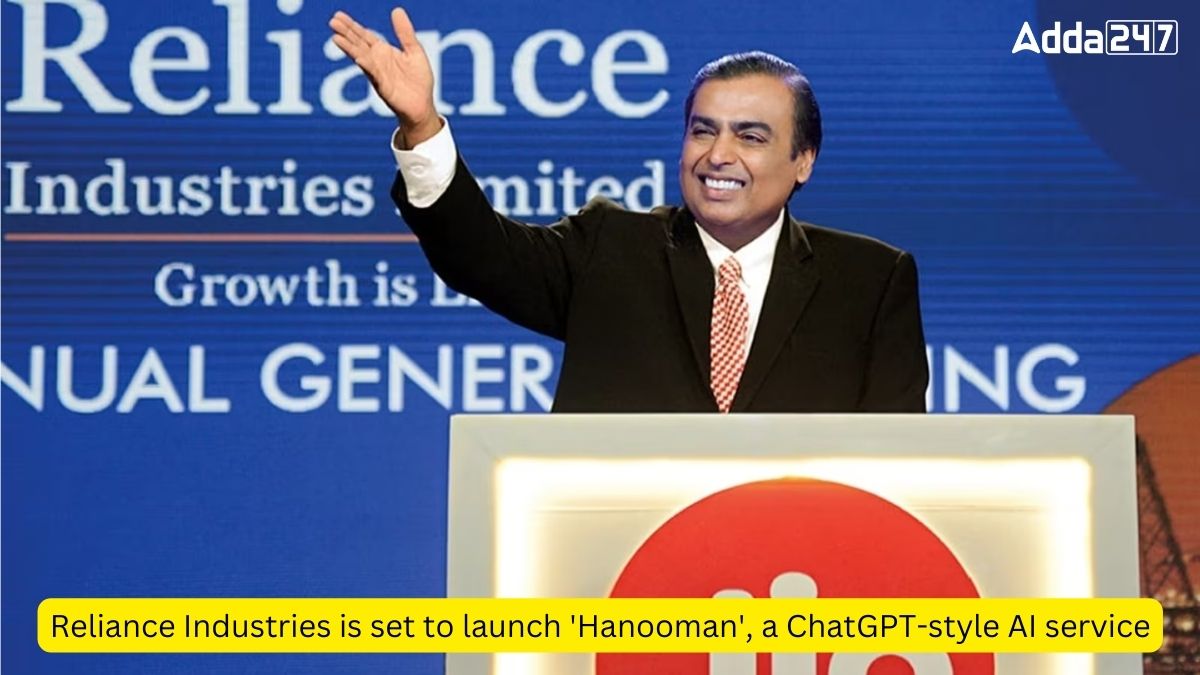

Reliance Industries is set to launch Hanooman a ChatGPT-style AI service
"Mukesh Ambani's Reliance Industries is about to launch ""Hanooman,"" a ground-breaking ChatGPT-like service, in association with some of the top engineering schools in the nation. Next month, Reliance Industries, under the leadership of Mukesh Ambani, will launch ""Hanooman,"" a ground-breaking ChatGPT-like service, in partnership with some of the top engineering schools in the nation. With the potential to usher in a new era of digital innovation and accessibility, this program represents a critical turning point in the development of AI capabilities within India. Teamwork at its Foundation. Reliance Jio Infocomm, Center, and multiple Indian Institutes of Technology (IIT), particularly IIT Bombay, collaborated closely to build ""Hanooman."" This joint venture, involving a group from Reliance and eight partner universities, highlights the cooperation between India's top business force and its universities are pushing the boundaries of technology. An Advance Look at ""Hanooman"" The capabilities of ""Hanooman"" were demonstrated to delegates of a recent technology conference in Mumbai. A banker conversing with the AI in Hindi, a motorcycle mechanic communicating with it in Tamil, and a Hyderabadi developer utilizing it to code were among the demonstrations. This preview demonstrated ""Hanooman's"" competence managing intricate relationships in a range of professional domains. Multicultural and Diverse. Hanooman's ability to function in 11 local languages and serve a variety of industries, such as healthcare, governance, financial service. With its speech-to-text and multilingual capabilities, ""Hanooman"" is positioned as an extremely adaptable and user-friendly AI model that is prepared to completely change India's digital environment. India's AI Future - The release of ""Hanooman"" coincides with a period of significant expansion for the AI industry in India, as companies like Sarvam and Krutrim—supported by well-known investors like Lightspeed Venture Partners and Vinod Khosla's fund—are also attempting to develop open-source AI models customized for the Indian environment. With aspirations to create unique models for particular applications through ""Jio Brain,"" Reliance Jio's vision goes beyond ""Hanooman"" and uses AI to improve its offerings for its roughly 450 million subscribers. An Unusual Public-Private Collaboration. The idea of BharatGPT is an innovative example of a public-private partnership; it brings together important players from various sectors to collaborate on developing and implementing AI solutions that are specifically tailored to India's need. This collaborative model not only demonstrates the potential for creativity, but it also establishes a standard for the nation's future technical accomplishments. "
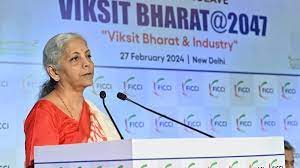

Next-gen reforms top of agenda for govts third term: FM Sitharaman
Finance Minister Nirmala Sitharaman on Tuesday said the next-generation reforms would be on top of the government’s agenda in its third term. The plan will touch upon factors of production, such as land, labour, capital, and entrepreneurship, along with digital infrastructure. Her statement comes a day after she met startup and fintech ecosystem stakeholders to address their concerns and encourage them to continue innovations while keeping a close watch on regulatory norms. “The reforms will touch on all factors of production — be it land, labour or capital. I’ll also add one, which may not fit into the traditional definition of what factors of production are, and that is digital infrastructure,” she said at the Federation of Indian Chambers and Commerce of Industry’s national conclave on Viksit Bharat@2047: Viksit Bharat & Industry. The government, she said, was looking at investment and innovation in artificial intelligence, policy support for expanding the space sector and semiconductor, precious metals and their warehousing as well. It will also ramp up investment in the logistics sector that has immense untapped potential along with tourism. She said India had shown how public investment is creating digital infrastructure at the bottom, and scaling it up has given the country the proverbial India stack — building it up brick by brick. “The reason why the prime minister is confident that a third term (for the government) is going to ensure India reaches the level of the third- largest economy is because of the push in these areas. Not just fiscal push, but legislative and other push as well,” Sitharaman said. During the Group of 20 (G20) summit, the finance minister said, countries expressed their appreciation of what India had done in terms of spreading the digital public infrastructure and its virtue in scaling up the development goals. “This is your modern day factor of production, without which you won't be able to scale up and bridge the gap between those who are still aspiring to develop and move forward,” she said. Pushing the industry to increase investments, Sitharaman said they should move forward with a great speed if global investments are coming in and look for greater joint venture partners around the world. “They’re coming in because they see prospects here…It is time for Indian industry to join this game in a big way,” she added.


The many failures behind each ‘success story’
A few years ago, I was talking about success and failure at a start-up event. The convention is to end by wishing the assembled entrepreneurs great success, which, honestly, no one notices because it’s a bit like asking “How are you doing?” and not waiting for an answer. Instead, I started by wishing the audience lots of failures. After the initial surprise, I managed to get their undivided attention and we had a wonderful discussion on the following points.


7 Calendar Features You May Not Be Using — But Should
Only in the last decade or so have more and more people come to use a digital calendar, which can act like your personal assistant. Still, so many features of the digital calendar go underutilized when using them could dramatically change your workday and even your life.The world is busier than ever — hustle and bustle are the name of the game — and it can be hard to keep up with it all. To help, most people use a calendar in some form or another; indeed, many people have multiple calendars. From a large desk planner to the cute designs you can hang on your wall, calendars help keep you on track.If you’re using a digital calendar like Calendar, Google Calendar, or Microsoft Outlook, you probably have multiple versions set up for different areas of your life. The most obvious are family, personal, and work. You need to remember your kid’s soccer game, your afternoon yoga class, and that big meeting after lunch. All of this is great unless all of your calendars aren’t synced. Syncing your various calendars will ensure you don’t overextend yourself. It will also allow anyone else adding items to your calendar — your assistant, your spouse, or a team member — to avoid double-booking you. You can sync your calendars both within a single application or across your devices. So, if you have Google Calendar for work but use Microsoft Outlook for your family, you can get them on the same page. Syncing your calendars requires a step-by-step process, but once you’ve done it, your life will likely feel much more streamlined. Gone are the days when you could simply schedule something in your planner and trust that you would remember it. Maybe you’d review your day in advance and lock it into your memory. No — now you have dozens of to-dos all in one day, and missing one could be catastrophic. Everyone has done it. You missed your kid’s performance in the play because you got caught up in a meeting. You were late to your meeting because your focus time ran long. It happens, but it doesn’t have to. Set reminders for yourself on your calendar to avoid these common mix-ups and mistakes. You can alert yourself the day before, an hour before, and 10 minutes before. Why not do all three? Missing the essential things in life and work doesn’t mean you don’t care; it just means you’re not prepared. Set reminders and alerts and aim to never miss another important part of life. If you are on any team, you should be sharing your calendar. Most people are on multiple teams. Think about it — you have your family, staff, coworkers, friends, and maybe even extended family. All of these small groups make up teams, and you likely have tasks, gatherings, and meetings to perform and attend together. One of the most critical aspects of a strong, cohesive team is getting everyone on the same page. You don’t want to have a social gathering and forget to invite one of your friends. Likewise, you can’t effectively lead a project without keeping everyone aware of the benchmarks and deadlines. Calendar sharing is ideal for keeping everyone on track of what’s happening. Everyone on the team can add items, and everyone will get alerts when they’re added. Then, if you’ve synced your calendars, you’ll be sure not to overbook yourself — it’s a win/win.


J&Ks new startup policy to boost entrepreneurial spirit in students, women and HNIs. All you need to know
The Jammu and Kashmir administration, chaired by Lieutenant Governor Manoj Sinha, on February 23 gave the nod to a fresh startup policy aimed at establishing 2,000 new startups in the Union Territory by 2027, an official spokesperson told PTI.The newly approved policy focuses on providing entrepreneurship support facilities to students, women, and entrepreneurs. Support will be extended through government, private entities, and high-net-worth individuals (HNIs) to facilitate the setup of startups, it added. The Administrative Council (AC) convened under the chairmanship of Lieutenant Governor Manoj Sinha approved the J&K startup policy 2024-27, superseding the policy announced in 2018.As part of the initiative, the Jammu and Kashmir administration plans to establish a Venture Capital Fund of ₹250 crore. An initial capital injection of up to ₹25 crore will be infused into the fund. The venture capital fund will primarily invest in recognised startups within J&K. Detailed modalities for the fund's creation and usage will be worked out in consultation with the finance department.The J&K Entrepreneurship Development Institute (JKEDI) is expected to develop a mechanism for the allotment of land to startups displaying significant growth potential.Furthermore, one-time assistance in the form of seed funding, up to ₹20 lakh (provided in four equal instalments), will be offered to startups recognised by JKEDI. This seed funding support will have a cap of 25 startups per year, aligning with budget constraints and the goal of effectively supporting a manageable number of startups.The government aims to establish 2,000 startups over the next three years. While prioritising quantity, the administration emphasises supporting a smaller number of carefully selected startups with seed funding. To ensure effective implementation, a high-powered committee, led by the chief secretary, will monitor the scheme's progress. Additionally, a task force committee, headed by the administrative secretary of Industries and Commerce, will oversee the day-to-day implementation of the startup policy.The decision to revamp the existing startup policy stems from the administration's commitment to nurturing and inspiring entrepreneurial talent in Jammu and Kashmir, the official told PTI.


NBCC stock jumps over 3% after signing MoUs with HUDCO
NBCC (India) has entered into two memorandum of understanding (MoU) with Housing and Urban Development Corporation Limited (HUDCO). NBCC stock surged 3.95 per cent on the NSE as of 11.32 am on Thursday to trade at ₹144.70. The MoUs pertain to reinforcing cooperation and collaboration to leverage respective strengths for the effective implementation of consultancy services and for the effective implementation of asset monetisation activities. In addition, NBCC had obtained the in-principle approval from Greater Noida Authority for the development of unused and purchasable FAR in furtherance of five existing projects of Amrapali valued at ₹10,000 crore.The stock had earlier hit a 52-week high on February 5, 2024, at ₹176.85.Meanwhile, HUDCO stock traded at ₹195 on the NSE, down by 0.43 per cent.
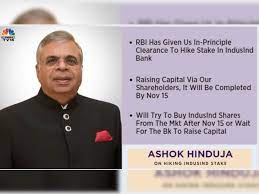

Stage to get cleared for Hindujas to hike stake in IndusInd Bank
Nearly a year after making a formal application to the Reserve Bank of India (RBI) for hiking stake in IndusInd Bank, the Hinduja Group is expected to get a go-ahead from the banking regulator. According to sources aware of the matter, the approvals to increase stake in the bank is likely to come through by end of this fiscal. IndusInd International Holdings Ltd, promoted by Ashok Hinduja, and its affiliate entity collectively hold around 16.5 per cent stake in IndusInd Bank. This can be increased to 26 per cent once the approval comes through formally.Nearly a year after making a formal application to the Reserve Bank of India (RBI) for hiking stake in IndusInd Bank, the Hinduja Group is expected to get a go-ahead from the banking regulator. According to sources aware of the matter, the approvals to increase stake in the bank is likely to come through by end of this fiscal. IndusInd International Holdings Ltd, promoted by Ashok Hinduja, and its affiliate entity collectively hold around 16.5 per cent stake in IndusInd Bank. This can be increased to 26 per cent once the approval comes through formally.
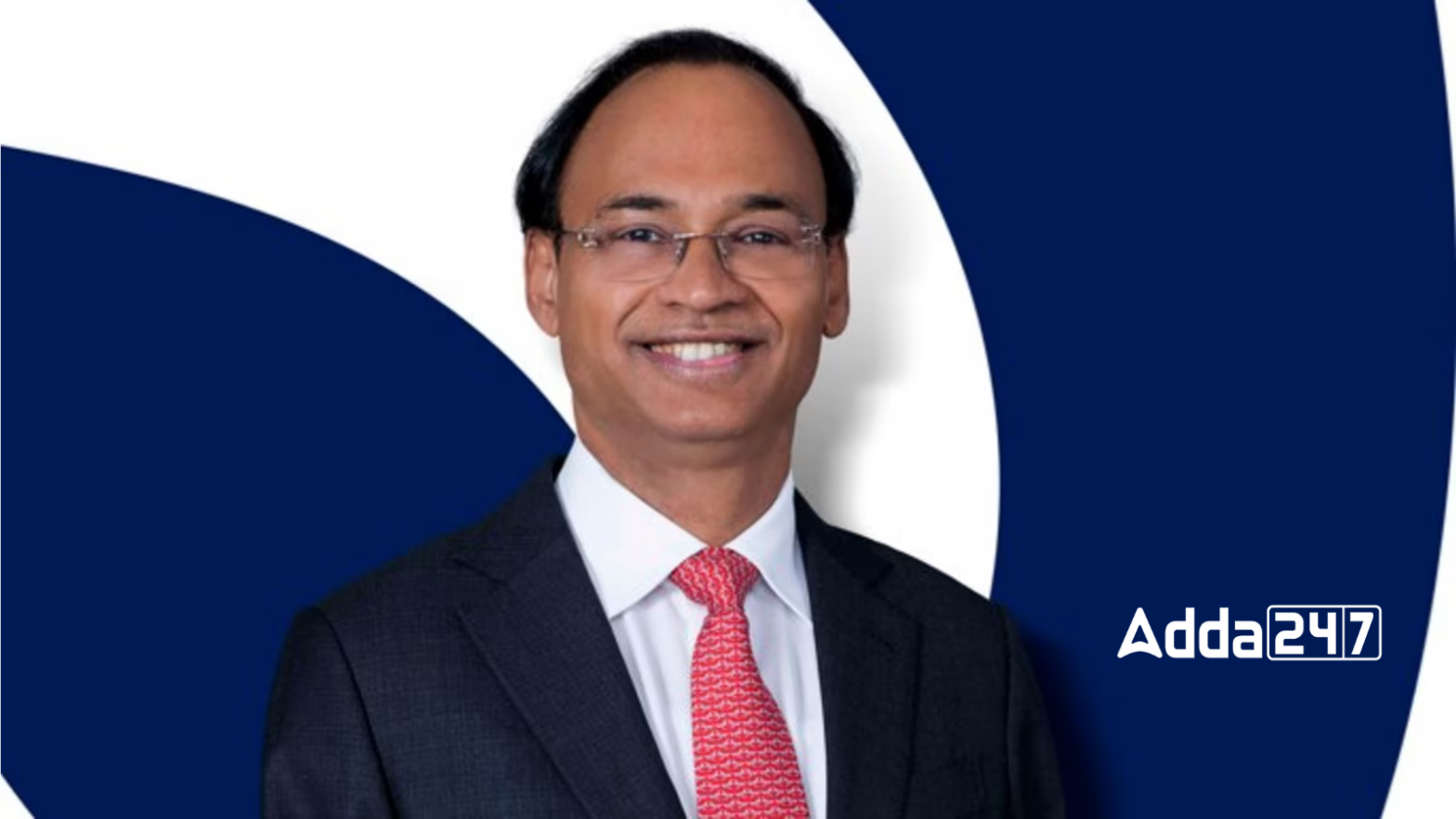

KVS Manian Appointed As Kotak Mahindra Bank’s New JMD
"Private lender Kotak Mahindra Bank made some significant leadership changes public on March 1, including naming KVS Manian as JMD (Joint Managing Director). Kotak Mahindra Bank, a private sector lender, recently revealed notable leadership changes that indicate a strategic change inside the company. KVS Manian Has Been Promoted to Co-Managing Director - Kotak Mahindra Bank redesigned KVS Manian, a seasoned executive with almost three decades of experience inside the organization, as the joint managing director with effect from March 1st. Manian has a plethora of experience, having graduated from the esteemed Indian Institutes of Technology (BHU) in Varanasi with degrees in both financial management and electrical engineering. Ekambaram Shanti Deputy Managing Director appointed With more than three decades of experience at Kotak Mahindra Bank, Shanti Ekambaram is a valuable addition to Manian's executive team. Ekambaram, who holds certifications as a Cost and Works Accountant and Chartered Accountant, and has a history in commerce, is a valuable addition to the bank's leadership team as deputy managing director. Chief Financial Officer Devang Gheewalla is appointed Devang Gheewalla will take over as chief financial officer in April, replacing Jaimin Bhatt in that position. Gheewalla will bring his vast financial experience to the forefront of Kotak Mahindra Bank's operations with this appointment, which also designates him as the president and group chief financial officer. To Take Over as Chief Operating Officer Is Milind Nagnur Milind Nagnur, the current chief technology officer, will assume the additional role of chief operating officer in April as part of a calculated drive to improve operational efficiency. The bank's dedication to utilizing technology and strengthening cybersecurity measures is demonstrated by Nagnur's dual function. Paul Parambi Becomes the Chief Risk Officer of the Group Paul Parambi has been named as the group chief risk officer by Kotak Mahindra Bank, with effect from March, in recognition of the vital necessity of risk management. The bank's risk management system Growth and Continuity under Ashok Vaswani, the New CEO The appointment of Ashok Vaswani as the new CEO, succeeding founder Uday Kotak, prompted a reorganization of the leadership. Former Barclays veteran Vaswani took office on January 1st after the Reserve Bank of India approved his three-year appointment. His direction lays the groundwork for Kotak Mahindra Bank to continue expanding and innovating. "
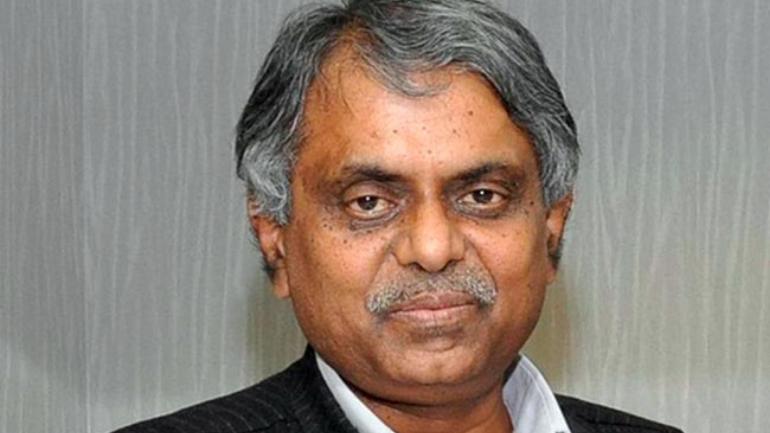

Pradeep Kumar Sinha Appointed as Non-Executive Part-time Chairman of ICICI Bank
"ICICI Bank authorized Mr. Pradeep Kumar Sinha's appointment as an Additional (Independent) Director for a term of five years at a recent board meeting. At a recent board meeting, ICICI Bank announced the appointment of Mr. Pradeep Kumar Sinha as Non-Executive Part-Time Chairman. With effect from June 30, 2024, this decision comes after the present Chairman, Mr. G. C. Chaturvedi, announced his retirement. Appointment at ICICI Bank authorized for a five-year term, subject to shareholder approval, as an Additional (Independent) Director, effective immediately. Designated as the Non-Executive Part-time Chairman, succeeding Mr. G. C. Chaturvedi, effective July 1, 2024, or upon RBI approval will take over in this role until February 16, 2029, covering Mr. Chaturvedi's retirement. Context Throughout his remarkable forty-year career, Mr. Pradeep Kumar Sinha has served in the Indian Administrative Service (IAS). He obtained his M. Phil in Social Sciences and has a Masters of Economics from the Delhi School of Economics. He has held a number of important roles during his career, including the position of Cabinet Secretary, which is the highest senior civil servant in India, for more than four years. He has worked in government ministries for a long time, mostly in the Power and Oil & Gas industries. Career Path Upon graduating from Delhi School of Economics with a master's degree in economics, he joined the Indian Administrative Service in 1977. Earned a diploma in economics with honors from Delhi's St. Stephens Collegeheld a visiting position after earning an M. Phil in the social sciences in 1991. a fellow at Oxford University in 1999. attended esteemed courses on ""Leaders in Development"" at Harvard University and ""Mergers and Acquisitions"" at Stanford University. Public Sector Employment Before joining the Government of India, they worked in the State of Uttar Pradesh in a variety of positions. held important positions for about 15 years in the Ministries of Power and Oil & Gas. held the post of Cabinet Secretary for almost four years, supervising the operation of the civil services. retired in March 2021 from the Prime Minister's Office following 44 years of devoted national service."
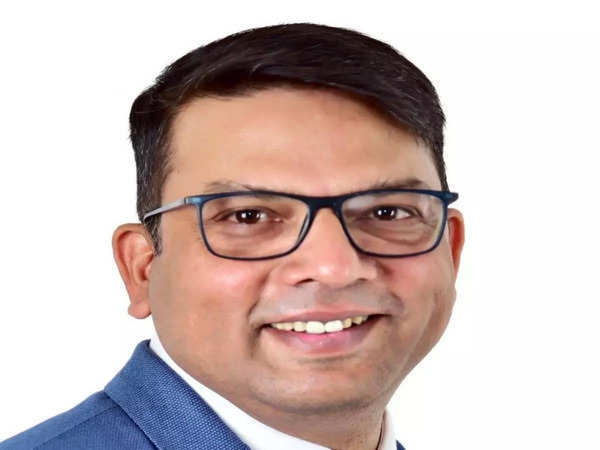

Nikhil Joshi Appointed As Managing Director of Boeing Defence India
"By designating Nikhil Joshi as the managing director of Boeing Defense India (BDI), Boeing has taken a big step to improve operations and forward its growth strategy in India. Nikhil Joshi's appointment as the managing director of Boeing Defense India (BDI) is a major step toward improving Boeing's operations and advancing its expansion strategy in India. By making this calculated move, Boeing is demonstrating its resolve to strengthen its position in one of the biggest defense markets globally and support India's defense forces' modernization and mission readiness initiatives. The Leadership of Nikhil Joshi: A Veteran's Return Nikhil Joshi, a resident of New Delhi, has over 25 years of experience in the aerospace and defense industries, including a notable career in the Indian Navy. He brings this wealth of knowledge to Boeing. He plays a crucial position at Boeing, leading both ongoing and upcoming initiatives that would improve the military forces of India's operating capacity. Under Joshi's direction, close cooperation between Boeing's global military and services industries is anticipated. Joshi reports directly to Salil Gupte, president of Boeing India and South Asia. An Outstanding Path. Joshi worked as the country manager for Eaton Aerospace in India before joining Boeing, where he made a big impact on growing the company's commercial reach. Among his many skills is commanding frontline ships and aviation squadrons, in addition to more than 4,000 hours spent in the air on different types of maritime reconnaissance aircraft. Joshi's varied background makes him a perfect leader to guide BDI toward its lofty goals in India. Boeing's History and Promise in India bolstering the Indian military arsenal. The fact that Boeing has maintained a partnership with India for more than 80 years shows how committed the firm has been to the nation's aerospace and defense industries. The strategic significance of this alliance is demonstrated by India's defense arsenal, which includes a variety of Boeing platforms, including C-17s, AH-64 Apaches, CH-47 Chinooks, P-8Is, VVIP, and Head of State aircraft. centered on the creation of sustainable value Boeing is deeply committed to India's larger aerospace ecosystem in addition to its sales efforts there. This entails cultivating regional vendors, forming partnerships in academia and research, and building a strong supply chain that presently counts over 310 regional businesses as members. A key component of this strategy is Boeing's joint venture, which produces vertical fin structures for the 737 family of aircraft and fuselages for Apache helicopters. "


Kaynes Semicon To Invest INR 4,000 Crore On OSAT/ATMP
Kaynes Semicon, a subsidiary of Kaynes Technology, will invest INR 4,000 crore to set up a semiconductor OSAT/ATMP (assembly, testing, marking and packaging) facility in the next one to two years. Hyderabad, Ahmedabad and Bhubaneswar are the preferred locations for setting up the facility. "The investment will create around 1,000-plus jobs and in the next couple of months we are expecting the final approval from the government," said Raghu Panicker, CEO, Kaynes SemiCon. The semiconductor industry comprises companies that design, fabricate, assemble, test, and supply semiconductors that are suitable for various applications. At present, India employs around 20 per cent of the global chip design talent pool. "We have mastered the art of doing chip design in the last 30 years and we are a strong player second to none. The coming together of the government, academia and venture capitals helped in creating the ecosystem for semiconductor chip design and startups," he added. Additionally, Kaynes Technology would be investing around INR 200 crore in its research and development for OSAT projects. Top semiconductor manufacturers have their largest R&D centers in India leveraging the high quality of talent to develop chip designs and provide engineering support.India's automotive industry is growing and semiconductor applications in electric vehicles, autonomous driving, and in-car entertainment systems present significant opportunities, "We are working with customers for co-package optics (CPO) and we are addressing the power segment. Electric vehicles is one of the most prominent sectors and along with it we are also exploring opportunities in other industrial sectors such as sensor signal processing, high-end computing, among others," he explained. Sharing insights into why the backend of semiconductor manufacturing is gaining popularity, Panicker, said, "Backend of the semiconductor manufacturing is more people centric and less capital intensive than silicon fabrication. It is easier to get technology partners from south east Asia who are willing to work together."Kaynes Technology is also investing in a bare board printed circuit board plant with HDI (High-density Interconnect) technology; the company has already raised money for this investment. "We are actively looking at investment in silicon carbide fab, silicon fab and display fab. The silicon carbide fab will have close to 100 crore investment, the silicon fab will have an European tech partner and display fab will have a Japanese tech partner," according to sources aware of the matter. Kaynes Technology is a 38-year-old electronics manufacturing services company with manufacturing infrastructure in Mysuru, Bengaluru, Chennai, Pune, Manesar and Parwanoo with service centers in Mumbai and Kochi.Kaynes Technology is a 38-year-old electronics manufacturing services company with manufacturing infrastructure in Mysuru, Bengaluru, Chennai, Pune, Manesar and Parwanoo with service centers in Mumbai and Kochi.


Former employees own 44 start-ups, eight backed by Binny Bansal
In the wee years of the millennium, two young former Amazon employees, Sachin Bansal and Binny Bansal, quit their jobs and founded their own e-commerce company Flipkart. The company grew by leaps and bounds and almost two decades later, a good number of Bansals’ former employees followed their paths, to start their ventures. Popularly referred to as ‘Flipkart Mafia’, Flipsters (former Flipkart employees) now own 44 start-ups, based on the data by PrivateCircle Research. However, these are only the companies about which information is available publicly and the real number could be higher. Data from the analytics platform YNOS venture engine, on the other hand, shows that of these 44 companies, eight are backed by Binny. These companies cumulatively have a valuation of $25 billion. Six of them are unicorns, with PhonePe being the company with the highest valuation - $12 billion. The other unicorns are Groww ($3 billion), Udaan ($1.75 billion), Spinny ($1.55 billion), cult.fit ($1.3 billion) and Slice ($1.3 billion), in that order. PrivateCircle’s data shows that the formation of new start-ups by Flipsters has a co-relation with the company’s ESOP buybacks. In December 2017, Flipkart bought back ESOPs worth over $100 million from over 3,000 current and former employees. In May 2018, American multinational Walmart acquired a majority stake in Flipkart. That year, the company exercised another ESOP buyback worth $500 million. The year 2018 also marked the creation of six start-ups by former Flipkart employees, the highest until then. In 2019, the company, yet again, exercised an ESOP buyback worth $100 million. In that year, eight start-ups were created by former Flipkart employees, the highest to date. Amid the pandemic, seven flipster-backed start-ups were incorporated in 2020. Four start-ups each were created in 2021 and 2022. In 2021, too, the company exercised an ESOP buyback.
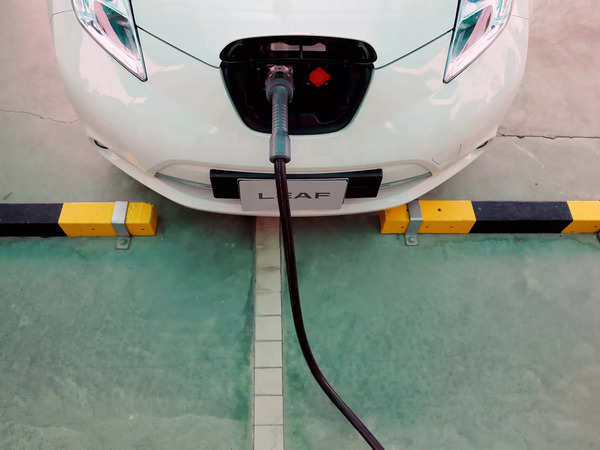

EV vs ICE price parity for luxury cars unlikely in near future
Carmakers Tata Motors, MG Motor India and Mahindra & Mahindra are narrowing the price gap between their electric vehicles and petrol and diesel models amid softening battery prices, but luxury carmakers do not expect such price parity any time soon. That is mainly because luxury battery electric vehicles (BEVs) are mostly imported into India, attracting up to 100% tax, and their sales volumes are too low to make local assembling viable for most models, industry executives and analysts said. “The cost of EVs in the luxury segment is much higher because of it being an expensive technology and lower volume,” said Vikram Pawah, president at BMW Group India. “So, it would take some time before the EV prices come on par with on-road prices of internal combustion engine (ICE)-powered models,” he said. Santosh Iyer, managing director and CEO of Mercedes India, said, “I don't see that (price parity) happening in the near future as BEVs in the luxury segment have much more technological advancements compared to the EVs in the mass market.” That said, electric vehicles do benefit from a lower GST of 5% and are exempt from road tax in some states. Such incentives have helped take the EV penetration in the luxury segment to 4% in 2023 against less than 2% in the mass car segment. Puneet Gupta, director at S&P Global Mobility, an automative research and analytics arm of S&P, said the price parity between EV and ICE in the luxury segment is still far away barring few high-end models and is likely to remain like that unless localisation takes off.


Aston Martin Unveils Its Contender For 2024 F1 Season; The AMR24
Aston Martin, the Silverstone-based Formula 1 team, has pulled the covers off its latest challenger, the AMR24, marking a significant milestone in their quest for championship success. Described as a "strong evolution" of its predecessor, the AMR24 emerges from the shadows of a season filled with both triumphs and tribulations in 2023. The journey of Aston Martin in the previous season resembled a rollercoaster ride, with a promising start giving way to challenges in maximising upgrades as the year progressed. However, armed with invaluable insights into their development missteps, the team is poised to turn the tide with its revamped car, set to hit the Silverstone track on Monday. The AMR24 showcases refinements across various aspects, with notable changes evident in its nose and front wing, aimed at enhancing outwash and overall aerodynamic efficiency. Additionally, Aston Martin has embraced a push-rod rear suspension configuration, courtesy of Mercedes customer parts, signalling a departure from its previous setup and a step towards aligning with the technological advancements sweeping through the sport. Dan Fallows, the technical director at Aston Martin, emphasised that while significant changes have been implemented, the AMR24 remains firmly rooted in the foundation laid by its predecessor, the AMR23. Fallows highlights the importance of driver feedback, particularly from the seasoned campaigner and two-time world champion Fernando Alonso, in identifying and addressing performance gaps, notably in achieving optimal straight-line speed and cornering prowess. Critical to Aston Martin's overarching strategy is ensuring AMR24's capacity for ongoing development throughout the season. Fallows underscores the importance of maintaining competitiveness in the fierce in-season development race, drawing crucial lessons from previous campaigns and acknowledging the relentless pursuit of performance enhancements. The unveiling of the AMR24 not only showcases Aston Martin's technological prowess but also sheds light on broader trends within the F1 landscape. The team's adoption of a push-rod rear suspension confirms a key shift also observed in Mercedes' upcoming W15 car, indicative of a concerted effort to overhaul performance strategies and adapt to the evolving demands of the sport. Meanwhile, Fernando Alonso's future in Formula 1 remains a topic of intense speculation, with the seasoned driver expressing a preference for Aston Martin should he decide to extend his tenure beyond the current season. However, Alonso concedes the need for careful consideration, balancing his unwavering passion for racing with personal priorities and long-term aspirations.


Karnataka in tie-up with Coffee Board to train 1 lakh women entrepreneurs
Karnataka in collaboration with Coffee Board plans to train one lakh women members of self help groups (SHGs) as coffee entrepreneurs in the state.Karnataka, the largest producer of coffee in India, plans to train 100,000 women from self-help groups (SHGs) as coffee entrepreneurs in an effort to empower and boost the coffee industry. The state, in collaboration with the Coffee Board, will also set up 2,500 coffee kiosks managed exclusively by SHG women. Karnataka accounts for over 70% of the country's coffee production, with coffee being grown in over 2.46 lakh hectares in the state. The majority of coffee growers in Karnataka are small growers. The Coffee Board is in regular discussions with the State Rural Livelihood Mission to create women coffee entrepreneurs, and with the formal announcement made in the state budget for 2024-25, the initiative will be implemented in the coming year. The coffee industry in Karnataka provides employment to over 5.19 lakh people on a daily basis. The poultry industry in India is urging the government to allow the import of genetically modified (GM) maize and soyameal due to strong competition for maize supplies from ethanol-makers. The industry heavily relies on maize for its feed requirements and believes that importing GM maize and soyameal, as well as introducing high-yielding GM seeds, will increase productivity. Suresh Chitturi, Managing Director of Srinivasa Farms and Co-Chair of CII’s National Committee on Animal Husbandry and Dairy, highlighted the success of the Green Revolution in increasing wheat and paddy productivity through the introduction of high-yielding varieties. The poultry industry also called for measures to increase maize production from 30 million tonnes to 40 million tonnes. The demand for maize from the poultry industry is expected to grow by 1 million tonnes annually, while the country's maize usage for ethanol production is projected to increase from 0.8 million tonnes to 10 million tonnes by 2027-28. The per capita egg consumption in India has reached 101 eggs and is expected to rise to 180 eggs in the next 6-7 years due to increased awareness of immunity and protein intake. sources


Get a Wireless, Speedy Charger for iPhones for $40
The life of a business leader or entrepreneur can be quite demanding and high stakes. When you're trying to build something or maintain its growth, you need to protect yourself from all possible hazards, even something as simple as your phone dying during an important meeting or sales opportunity. To help you stay connected, you can get this Speedy Mag Wireless Charger for iPhone, which is on sale for just $39.99 (reg. $119) during our Presidents' Day sale. Its wireless design works with a solid, sleek, and slim charging base that you can rest your iPhone on for rapid charging to keep you juiced when you're holding that same phone up to your ear. Despite its slim design, the charging base can be trusted to keep your phone securely on it with its strong magnetic absorption features. While it is capable, fast-moving, and affordable, this Speedy Mag Wireless Charger is also safe. It comes with built-in preventative features to stop your device from overcharging or overheating. Entrepreneurs and business leaders, your time is your greatest asset. If you're not thinking ahead about ways to protect that time, even in as simple terms as having a reliable and transportable phone charger, then you're not giving yourself or your business the best odds of success. Turn that corner with this special deal. Don't miss your chance to get this Speedy Mag Wireless Charger for iPhone, which is on sale for just $39.99 (reg. $119) during our Presidents' Day sale — a price that beats Walmart's!


















